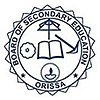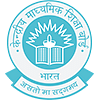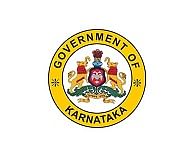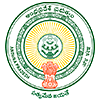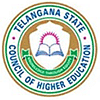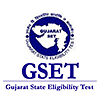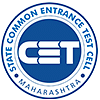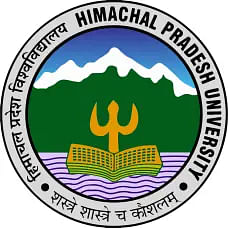
Table of Contents
OTET 2024 admit card has been released on the official website at bseodisha.ac.in. The hall ticket was out on Aug 12, 2024. The candidates who wish to download the OTET Admit Card 2024 must enter their login details on the link below.
OTET application form 2024 was released on Jun 24, 2024 on the official website at bseodisha.ac.in. Applicants were supposed to enter the details required and fill out their form before the scheduled last date, which was, Jul 5, 2024. However, students were supposed to pay the fees by Jul 6, 2024.
The official notification for the OTET exam was released on Jun 21, 2024. The OTET exam date 2024 is scheduled for Aug 17, 2024.
OTET Admit Card 2024
OTET admit card 2024 was issued on Aug 12, 2024, by the Board of Secondary Education (BSE), Odisha. The candidates can download the BSE Odisha TET admit card 2024 from the official website at bseodisha.nic.in.
The Odisha TET admit card 2024 will contain the candidates’ details as well as important, exam-related information such as date, exam centre, mode of the exam, etc.
Steps to Download OTET 2024 Admit card
- Step 1: Visit the Board of Secondary Education (BSE), Odisha's official website at bseodisha.nic.in.
- Step 2: Click on the " ADMIT CARD ODISHA TEACHER ELIGIBILITY TEST OTET" in the latest updates section.
- Step 3: Enter the registration number or mobile number.
- Step 4: Next, click on the 'Login' button.
- Step 5: The OTET admit card 2024 will be displayed on the screen.
- Step 6: Print a copy of the Odisha TET admit card 2024.
Read More: OTET Admit Card 2024
OTET Exam Date 2024
OTET 2024 exam is scheduled to be conducted on Aug 17, 2024. However, the official notification was released on Jun 21, 2024. The admit card for the same was out on Aug 12, 2024.
However, applicants must check the date list shared below.
| Events | Dates |
|---|---|
| OTET Notification Release Date | Jun 21, 2024 |
| OTET Application Form Release Date | Jun 24, 2024 (Ongoing) |
| OTET Application Form Last Date | Jul 5, 2024 |
| OTET Application Fee Payment Last Date | Jul 6, 2024 |
| OTET Admit Card Release Date | Aug 12, 2024 |
| OTET Exam Date | Aug 17, 2024 |
| Release of the OTET Answer Key | Aug 18, 2024 |
| Challenging the OTET Answer Key | Aug 2024 |
| OTET Result Release Date | Sep 2024 |
OTET Exam Centres 2024
No details have been released regarding the examination centres yet. Students will be able to find their centre’s name and address on their respective admit cards. The test center once allotted cannot be changed under any circumstances.
OTET Exam Pattern 2024
OTET 2024 would be conducted in two categories. Category A is for those who wish to teach primary classes (Grades I-V) and Category B, is for those who wish to teach secondary classes (Grades VI-VIII).
OTET 2024 Exam Pattern for Category-A (Paper-I)
The detailed OTET exam pattern 2024 for the paper 1 exam has been shared in the tabular below.
| Subject | Number of Questions | Marks |
|---|---|---|
| Child Development and Pedagogy | 30 | 30 |
| Language 1: Hindi/Urdu/Bengali/Odia/Telugu | 30 | 30 |
| Language 2: English | 30 | 30 |
| Mathematics | 30 | 30 |
| Environmental Studies | 30 | 30 |
| Total | 150 | 150 |
| Duration: 150 Minutes | ||
Each subject area would have 20 questions to test content knowledge and the remaining 10 for pedagogic practices.
OTET 2024 Exam Pattern for Category-B (Paper-II)
Candidates have to choose one combination and only answer the questions from that combination.
| Subject | Number of Questions | Marks |
|---|---|---|
| Child Development and Pedagogy | 30 | 30 |
| Language 1: Hindi/Urdu/Odia/Bengali/Telugu | 30 | 30 |
| Language 2: English | 30 | 30 |
| Combination 1: Mathematics + Science | 30+30 | 60 |
| Combination 2: Social Studies (History, Political Science and Geography) | 15+15+30 | 60 |
| Total | 150 | 150 |
| Duration: 150 minutes | ||
Marking Scheme: Each question carries one mark. There is no negative marking in this exam.
OTET Syllabus 2024
Here’s a list of all the topics which the candidates are supposed to prepare, to qualify for the OTET 2024 with flying colours.
Syllabus for Category-A (Paper-1)
Here’s a detailed list of all the topics candidates are required to study for the upcoming OTET 2024.
Child Development and Pedagogy
Unit-1: Understanding Child Development During Childhood
- Concept, Principles, and Stages of Child Development
- Characteristics of Physical, Cognitive, Emotional, Social and Moral Development in Childhood
- Understanding the child influencing of heredity and environment
Unit-2: Understanding the Learning Process and Learners
- The difference in concept, nature, and individual in learning
- Understanding a child’s learning through observation
- Primary conditions of learning and promotion through motivation, classroom learning environment, and teacher’s behaviour
- Development of creative thinking
Unit-3: Concept of comprehensive education and understanding children with special needs
- The concept of inclusive education
- Addressing the needs of diverse group learning in an inclusive classroom (CWSN, SC/ST, Girls)
- Addressing Talented and Creative Learning
Unit-4: Approaches to Teaching and Learning
- Teacher-centred, learner-centred and learning-centred approach
- The competency-based and activity-based approach
- Importance, preparation and use of TLM for a classroom transaction
- Teaching competency to handle monograde and multigrade situations
Unit-5: Assessment; Continuous and Comprehensive Assessment
- Purpose of assessment
- Assessing scholastic and other scholastic/academic areas
- Sharing of Assessment Outcomes and Follow-Up
Language (Hindi/Urdu/Odia/Bengali/Telugu)
Unit-1: Learning Hindi/Urdu/Odia/Bengali/Telugu at Elementary Level
- Aims Objectives of teaching Hindi/Urdu/Bengali/Telugu/Odia as mother tongue
- Principles of language teaching
- Acquiring four-fold of language skills viz LSRW. The interdependence of four language skills.
- Strategies and Objectives of transacting integrated text for beginners
Unit-2: Teaching Reading and Writing Skills
- The technique of developing intensive and extensive reading skills
- Teaching-Learning Composition and Creative Writing
- Critical context on the role of grammar in learning a language for communicating ideas in written form
- Challenges on how to teach language in a diverse classroom, language difficulties and errors
Unit-3: Assessment of Learning Hindi/Urdu/Odia/Bengali/Telugu
- Evaluation, Language Comprehension, and Proficiency: Listening, Speaking, Reading and Writing
- Remedial Teaching
Unit-4: Language Items
- Parts of speech: Nouns, Pronouns, Verbs, Adverbs, Adjectives, Conjunctions
- Word formation using suffixes and prefix
- Phrases and Idioms
- Synonyms and Antonyms
Unit-5: Language Comprehension
- 2 Unseen Passages (one passage from prose and one poetry)- Questions would be based on comprehension, drama, inference, vocabulary, grammar, and verbal ability.
Language- English
Unit-1: Learning English- Elementary Level
- Importance and Objectives of Learning English
Unit-2: Language Learning
- Principles of teaching the English language
- Challenges of teaching language in a diverse classroom
Unit-3: Skills in learning English
- Basic skills of four-fold learning- LSRW | The interdependence of skills
- Activities and Techniques for developing speaking and listening skills
- Evolution of reading skills: reading for comprehension; techniques and strategies of teaching how to read (phonics, alphabet, word, sentence, story)
- Development of Writing Skills- teaching composition
Unit-4: Assessment of Teaching
- Assessment of language comprehension and proficiency
Unit-5: Comprehension
- Two unseen prose passages with questions on comprehension, verbal ability, and grammar
Unit-6: Language Items
- Verbs, Tense, Nouns, Adverbs and Time, Articles, Adjectives, Punctuation, Preposition
Mathematics
Unit-1: Mathematics Education in Schools
- Nature
- Aims and Objectives of Teaching Mathematics
- Specific Objectives of Teaching Mathematics
Unit-2: Methods and Approaches to Teaching and Learning Mathematics
- Methods- Inductive, Deductive, Analysis, Play-way, Synthesis
- Approaches: activity-based and constructivist
Unit-3: Assessment in Mathematics
- Formal and informal assessments
- Different types of test items
- Planning for remedial and enrichment programs in mathematics
Unit-4: Number system and operations in numbers
- Number systems (natural, whole, real, rational)
- Fundamental operations on numbers
- Fractional numbers and decimals
- Factors and multiples
- Percentage and its application
Unit-5: Measurement
- Length, weight, capacity
- Area and perimeter of rectangle and square
- Time
Unit-6: Shapes and Spatial Relationships
- Basic geometrical concepts
- The geometry of circles, triangles, and quadrilaterals
- Symmetry
- Geometrical slides
Unit-7: Data Handling and Patterns
- Pictography, bar graph, pie chart, histogram
- Interpretation of Graphs
- Patterns in numbers and figures
Environmental Studies
Unit-1: Concept and Significance
- Aims and objectives
- Integration of Science and Social Science
Unit-2: Methods and Approaches
- Basic principles of teaching EVS
- Methods- Survey, practical work, discussion, observation, project
- Approaches: theme-based, activity-based
Unit-3: Evaluation in EVS
- Tools and techniques of evaluation
- Diagnostic Assessment in EVS
Unit-4: Governance
- Local Government
- Government- State, and Central
- Judiciary
Unit-5: Physical Features of Odisha and India
- Landscape
- Climate
- Natural Resources
- Agriculture and History
Unit-6: History of Freedom Struggle in India and Odisha
Unit-7: Health and Diseases
- Nutritional elements, Balanced Diet
- Nutritional Deficiency
- Diseases
- Waste Material and Disposal
- Air and Water Pollution
- First Aid
Unit-8: Internal Systems of the Human Body
- Respiratory system
- Circulatory system
- Digestive system
- Excretory system
- Structure and parts of plants and their functions.
Unit-9: Matter, Force, and Energy
- Matter and its properties
- Earth and sky- the effect of rotation and revolution of the earth
- Work and energy
Syllabus for Category-B (Paper-2)
Here’s a detailed list of all the topics candidates need to study for the upcoming OTET 2024-
Child Development and Pedagogy
Unit 1: Child Development
- Features of cognitive, emotional, social, and moral development in preadolescence and adolescence
- Effect of heredity and environment on the development
- Problems and Needs of Adolescents
- Individual differences among learners
Unit 2: Learning
- Meaning, Making, and Construction of Knowledge
- Learning as a social activity
- Rote memorization and meaningful learning
- Factors affecting learning
- Strategies for promoting lesson
- Addressing the needs and wants of children with learning disabilities and impairments
- Addressing Talented, Creative and Specially-Abled Learners
Unit 3: Curriculum Teaching, Learning Approaches, and Evaluation
- Teacher-centred, learner-centred, and learning-centred approaches
- Principles of curriculum organization
- Teaching-learning aids
- CCE- Learning, designing, planning achievement tests, rating scale
- Test validity and reliability
- Date representation- mean, median, mode, standard deviation
Language 1 (Hindi/Urdu/Bengali/Odia/Telugu)
Unit 1: Learning
- Objectives and Aims of learning Hindi/Urdu/Bengali/Odia/Telugu as the first language
- Principles of Teaching Mother Tongue
- Development in learning language skills (LSRW)
Unit 2: Intensive and Extensive Reading Skills at Upper Primary Level
- The teaching of non-detailed and detailed texts (prose and poetry)
- The teaching of composition and creative writing
- Teaching of grammar
- Challenges while teaching language in a multilingual context
Unit 3: Assessment of Language
- Evaluation of learning Urdu/Odia/Bengali/Hindi/Telugu - LSRW
- Designing and planning achievement tests and other tools of evaluation
Unit 4: Elements of Hindi/Urdu/Bengali/Odia/Telugu
- Understanding of two unseen passages (one passage each from prose and poetry) with questions to test comprehension, vocabulary, and grammar
Unit 5: Language Items
- Parts of Speech (Noun, Pronoun, Verb, Adverb, Adjective, Conjunction, Punctuation)
- Word formation using prefix and suffix
- Vocabulary
- Phrases and Idioms
Unit 6: Contributions of Literates for the development of Hindi/Urdu/Bengali/Odia/Telugu
- Odia- Fakir Mohan, Gopinath Mohanty, Senapati, Radhanath Ray, Gangadhar Mehar, Surendra Mohanty
- Urdu- Altaf Hussain Hali, Niaz Fatehpuri, Ali Sardar Jafri, Amir Khusro, Majrooh Sulanpuri
- Hindi- Bhartendu Babu Harishchandra, Mahavir Prasad Dwivedi, Prem Chand, Jayashankar Prasad, Suryakant Tripathi Nirala
- Bengali- Rabindranath Tagore, Sarat Chandra Chattopadhyay, Tarasankar Bandopadhyay, Kazi Nazrul Islam, Bibhuti Bhusan Bandopadhyay
- Telugu- Stimanthudu, Gurajada Appa Rao, Kandukuri Veeresalingam, Arudra, C. Narayana Reddy
Language 2- English
Unit 1: English Learning at Upper Primary Level
- Importance of Learning English Language
- Objectives of Learning English Language
Unit 2: Development in English Language Skills
- Basic skills of language- LSRW. Interdependence of LSRW
- The teaching of prose, poetry, and composition
- The teaching of creative writing
- Principles of language learning
- Challenges of learning the English language
Unit 3: Evaluation of learning the English language
- Evaluation of comprehension and language skills
Unit 4: Comprehension
- Two unseen passages from a poem and a drama/prose with questions on comprehension and grammar
Unit 5: Language Items
- Parts of speech
- Tense
- Voice
Mathematics
Unit 1: Mathematics at the Upper Primary Stage
- Nature of Mathematics
- Aims and objectives of teaching Mathematics
- Specific objectives of teaching Mathematics
Unit 2: Methods and Approaches to teaching and learning Mathematics
- Induction
- Deduction
- Analysis
- Synthesis
- Approaches: Activity-Based and Constructivist
Unit 3: Evaluation in Mathematics
- Formal and Informal Evaluation
- Error analysis
- Remedial and enrichment programs
Unit 4: Number System
- Number System (Real and Rational Numbers)
- Properties in different number systems
Unit 5: Algebra
- Basic concepts
- Algebraic Equations and their Applications
- Polynomials - operations in polynomials
- Laws of Indices
- Identities
Unit 6: Commercial Arithmetic
- Ratio and proportion
- Percentage and its application
- Variation and its applications
- Square, Square roots of natural numbers
- Cube and cube roots of natural numbers
Unit 7: Shapes and Spatial Relationships
- Triangles and Quadrilaterals
- Angles, opposite angles, complementary angles, supplementary angles, exterior angles of a triangle
- Angle sum property
- Parallel lines and their properties
- Mensuration
- Congruence and similarities
Science
Unit 1: Nature of Science
- Aims and Objectives
Unit 2: Methods and Approaches to Teaching Science
- Methods of experimentation- discovery, problem-solving, project, observation
- Approaches- Integrated and Constructivist
Unit 3: Evaluation
- Tools and techniques for learning Science
Unit 4: Physical Science
- Metals, Nonmetals, and Metalloid
- Elements and compounds
- Symbols, valence, and chemical equations
- Acid, base and salt
- Physical and chemical changes in matters
- Motion, friction, force, and pressure in solids, liquids, and gases
- Electricity and current. Chemical effects of electric current.
- Reflection and refraction of light
- Solar system and planets
Unit 5: Life Science
- Biological adaptation among living things
- Respiration and transpiration
- Soil and forest resource
- Cell structure and function of cell organelles
- Micro-organisms
- Adolescence in human beings
Social Studies
Unit 1: Aims and Objectives of Teaching Social Studies
- Importance
- Aims and Objectives
- Specific objectives
Unit 2: Methods and Approaches
- Methods: Survey, Projects, Group work, Field-work/trips
- Approaches that are based on Activity and Theme
Unit 3: Evaluation in Social Studies
- Tools and techniques for learning
- Diagnostic assessment
- Remedial Teaching
Unit 4: History
- Methods of historical studies
- Social, political and economic conditions of the sultanate
- The Mughal and British period
- Slave, Khilji, Tughlaq and Lodhi dynasties
- Impact of the British Rule, East India Company, British Crown, Ancient Period, Ashoka, Kharavela
- Soma, Garaganga, Surya, Fall of Odisha, Odisha under Mughals
- The Nationalist Movement in India
- Development of Nationalism and Europe
Unit 5: Political Science
- Indian constitution
- Human rights
- Governance at local, state and central level
- Political parties and pressure groups
Unit 6: Geography
- Geography of Odisha
- Natural resources
- Atmosphere, biosphere, and hydrosphere
- Earth- crust, internal structure, landscape
- Temperature zones of the earth
Must Check: OTET Syllabus 2024
OTET 2024 Application Form
OTET 2024 application form was released on Jun 24, 2024. The form was released on the official website by the conducting authority. Applicants are advised to fill out the form before the scheduled last date, which was, Jul 5, 2024.
However, the last date to pay the application fees was Jul 6, 2024. Candidates must visit the official website and fill out the form. The direct link to apply for the OTET 2024 application form has been shared in the table below (closed now).
| Particulars | Link |
| OTET Application Form 2024 - Paper 1 | Direct Link (Closed) |
| OTET Application Form 2024 - Paper 2 | Direct Link (Closed) |
| OTET Application Form 2024 - Both Papers | Direct Link (Closed) |
NOTE: A candidate can only appear for one of the categories of OTET 2024. Applying for both, Paper-1, as well as Paper-2, would lead to the rejection of candidature. Here’s all that you need to do, to register for OTET 2024.
OTET 2024 Documents Required
Given below is a list of all the documents you’ll require scanned copies of, once you’ve sat down to fill up your OTET 2024 application form-
- Photograph and Signature resized as per the guidelines.
- Qualifying Examination Certificate
- Category Certificate (For SC, ST, OBC and SEBC candidates)
- PH or PWD Certificate for Persons with Disabilities
- 12th class (+2) mark sheet or certificate for untrained (SC, ST or PH) candidates
- Appearing Qualifying Examination Certificate
Steps To Fill The OTET 2024 Application Form
- Step 1: Visit the given link for the Board of Secondary Education Odisha’s official website.
- Step 2: Find the “Online Application for OTET 2024” link and click on it.
- Step 3: If you’re a new user, click on the link given for ‘New Registrations.’ Enter your name, contact number, and a valid email address. Enter a unique password and proceed.
- Step 4: You will now be required to log into your account using your registered email id and the verification code that has been mailed to you, to verify your account.
- Step 5: Payment of Application Fee:
- Post account verification, the candidates will be redirected to the application fee payment page.
- Online mode of payment: SBI Debit Card or SBI Net Banking
- Offline method of payment: SBI Challan
- Step 6: The students are advised to take a printout of their fee receipt for future reference.
| Category | Fee |
|---|---|
| General/OBC/SEBC | INR 500 |
| SC/ST | INR 300 |
About OTET Exam
Every year, the Board of Secondary Education, Odisha organizes an exam, inviting applications from candidates who want to make a career in teaching. This exam is called the OTET (Odisha Teacher Eligibility Test). The ones who qualify are eligible to obtain employment in the government, private aided and private unaided schools of Odisha.
However, qualifying for this examination shouldn’t be interpreted as a promise of a job. It is merely one of the parameters set by schools, which helps them find the most employable candidates. Given in the table below are some highlights of the Odisha Teacher Eligibility Test.
| Exam Name | OTET |
| Full Form | Odisha Teacher Eligibility Test |
| Exam Level | State |
| Conducting Body | Board of Secondary Education, Odisha |
| Exam Mode | Offline |
| Exam Duration | 150 Minutes |
| Types of Questions | Multiple Choice Questions |
| Official Website | bseodisha.ac.in |
| Similar Exams | PTET Exam/PSTET Exam/HTET Exam/UTET Exam |
OTET is a standardized test developed by the Board of Secondary Education, Odisha. Even if one has a degree in education, it is mandatory to qualify for this examination, to work as a primary or secondary teacher in the schools of Odisha. A better score improves your chances of employability.
OTET Eligibility Criteria 2024
Before the application process starts, it is wise to check if you meet the eligibility criteria set by the Board of Secondary Education, Odisha. Eligibility conditions for both the categories of this examination are given below:
OTET 2024: Eligibility Criteria for Category-A (Primary Teacher)
- Candidates must have cleared their Higher Secondary (or equivalent) examination with a minimum of 50%. They must have a 2-year Diploma in Elementary Education (D.El.Ed) or its equivalent.
- Candidates must have cleared their Higher Secondary (or equivalent) examination with a minimum of 45% marks and must possess a 2-year Diploma in Elementary Education following the NCTE regulations- 2002.
- Candidates must have cleared their Higher Secondary examination (or equivalent) with at least 50% marks. They should have pursued a four-year-long course of Bachelors in Elementary Education (B.El.Ed).
- Candidates must have cleared their Higher Secondary examination (or equivalent) with at least 50% marks and must possess a two-year Diploma in Education or Special Education.
- The candidate must have a Graduation Degree and a two-year Diploma in Elementary Education.
- The candidate must have Graduated with 50% marks and must possess a B.Ed. Degree, acquired from any NCTE-recognized institution. The person so appointed shall a six-month-long Bridge Course in Elementary Education recognized by NCTE, within two years of their appointment as a Primary Teacher.
OTET 2024: Eligibility Criteria for Category-B (Secondary Teacher)
- The candidate must have a Graduation Degree and a Diploma in Elementary Education.
- The candidate must have secured at least 50% in Graduation and must have completed the first year in B.Ed.
- The candidate must have graduated with 45% marks and one year in B.Ed., following the NCTE Regulations issued from time to time during this regard.
- The candidate must have cleared Higher Secondary (or equivalent) with 50% marks and attained a degree in B.El.Ed.
- The candidate must have scored 50% in the Higher Secondary examination and pursued a B.A./B.Sc. + Ed or B.A.Ed., or B.Sc.Ed.
- The candidate must have graduated with 50% marks and pursued a one-year B.Ed. in Special Education.
NOTE:
- A relaxation of 5% in minimum qualifying marks shall be allowed to the candidates belonging to SC, ST, SEBC, OBC and PWD categories.
- Candidates having B.Ed. and D.Ed. in Special Education shall undergo specialized training in Elementary Education for six months, from an NCTE-recognized institution post their appointment.
- Candidates who are still in the final year of any relevant Teacher Education Programme can also appear in this examination.
OTET Answer Key 2024
OTET 2024 answer keys for Paper 1 and 2 will be released probably by Aug 2024. Candidates will be given an opportunity to raise objections against the preliminary OTET answer key 2024. To submit objections, candidates will have to pay a fee of INR 500 per objection and upload supporting documents.
Steps to Download OTET 2024 Answer Key
Candidates can follow the steps mentioned below to download their OTET/Special OTET answer key from the official website.
- Step 1: Candidates must visit the official website.
- Step 2: Click on the "Provisional Scoring Key of SOTET (Paper I/II) 2024" link on the homepage.
- Step 3: The answer key will appear on the screen. Candidates are advised to go through the answers carefully.
- Step 4: Candidates can now download the answer key as PDF files.
OTET Result 2024
OTET result 2024 will be declared by the Board of Secondary Education, Odisha on their official website probably by Sep 2024. Candidates must enter the login credentials required ti download their OTET 2024 result.
However, the minimum qualifying marks and percentage for the OTET 2024 are given below:
| OTET 2024 Minimum Qualifying Marks & Percentage | ||
|---|---|---|
| Category | Marks | Percentage |
| General | 90 | 60% |
| SC/ST/OBC/PwD/SEBC | 75 | 50% |
The candidates who successfully make it to the merit list shall be eligible for employment in different schools of Odisha.
OTET Contact Information
In case of any questions or queries, candidates can reach out to the concerned authorities through the following contact details.
| Particulars | Details |
| Address | Board of Secondary Education, Manikhamb, Balasore, Odisha-756001 |
| Phone Numbers | 2415460, 241428, 241429, 241439 |
| Email ID | info@bseodisha.ac.in |
| Official Website | www.bseodisha.ac.in |
FAQs on OTET
Q: Is there an upper age limit for appearing in OTET 2024?
Q: What is the minimum age requirement to appear in OTET?
Q: For how long will my OTET certificate be valid?
Q: What is the OTET exam date 2024?
Q: Is OTET admit card 2024 released?
Q: How can I download my OTET admit card 2024?
